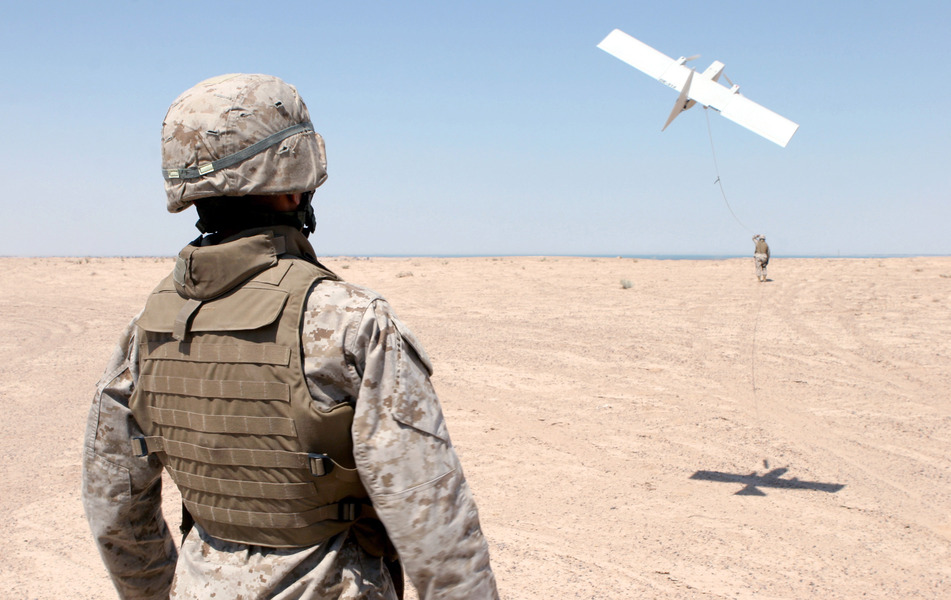Annals of the Trump Administration #3: Refusing to Add Waterboarding to the Field Manual?
In a prior post I discussed the Trump administration's apparent interest in reviving waterboarding as an interrogation method, noted that a federal statute forbids resort to any interrogation method not listed in the relevant Army Field Manual, and explained that the Trump administration might try to overcome that barrier by pushing to have the manual amended to include a classified annex authorizing waterboarding.
Published by The Lawfare Institute
in Cooperation With

In a prior post I discussed the Trump administration's apparent interest in reviving waterboarding as an interrogation method, noted that a federal statute forbids resort to any interrogation method not listed in the relevant Army Field Manual, and explained that the Trump administration might try to overcome that barrier by pushing to have the manual amended to include a classified annex authorizing waterboarding. This possibility raises an important question: On what grounds might someone resist pressure to add waterboarding to the field manual?
One possibility is the argument that waterboarding itself would be illegal, and hence one cannot lawfully be ordered to make it part of the Field Manual (Article 90 of the Uniform Code of Military Justice makes it a crime to disobey a superior's orders, yes, but only when those orders are "lawful"). That line of argument of course leads immediately back to the "is waterboarding torture" debate, which is understandable since the most obviously-relevant statute in the interrogation setting may be the Torture Act, and so much of the waterboarding debate over the years has focused on the boundaries of the torture category (including the narrow (and, to my mind, extremely problematic) definition of "severe mental pain or suffering" contained in that Act's definition section). It would be a mistake, however, to end the analysis there. Even if one concludes that waterboarding is not torture within the meaning of that statute, there is another relevant statute that prohibits a much wider category of interrogation methods.
The key question for someone pondering whether to resist an order to add waterboarding to the Field Manual should be: Is waterboarding permitted under section 1003 of the Detainee Treatment Act of 2005, which flat prohibits not "torture" but, instead, the broader category of "cruel, inhuman, or degrading treatment" (aka "CID treatment"):
Prohibition on Cruel, Inhuman, or Degrading Treatment or Punishment of Persons under Custody or Control of the United States Government
Sec. 1003.
(a) In General.—No individual in the custody or under the physical control of the United States Government, regardless of nationality or physical location, shall be subject to cruel, inhuman, or degrading treatment or punishment.
(b) Construction.—Nothing in this section shall be construed to impose any geographical limitation on the applicability of the prohibition against cruel, inhuman, or degrading treatment or punishment under this section.
(c) Limitation on Supersedure.—The provisions of this section shall not be superseded, except by a provision of law enacted after the date of the enactment of this Act which specifically repeals, modifies, or supersedes the provisions of this section.
(d) Cruel, Inhuman, or Degrading Treatment or Punishment Defined.—In this section, the term “cruel, inhuman, or degrading treatment or punishment” means the cruel, unusual, and inhumane treatment or punishment prohibited by the Fifth, Eighth, and Fourteenth Amendments to the Constitution of the United States, as defined in the United States Reservations, Declarations and Understandings to the United Nations Convention Against Torture and Other Forms of Cruel, Inhuman or Degrading Treatment or Punishment done at New York, December 10, 1984.
At first blush, the answer to this question seems obvious: if waterboarding is at best a close call in terms of the torture definition, surely it is therefore at least CID treatment (on the theory that anything that is a close call on torture by definition comes easily within the scope of the broader CID category). There is a catch, however, thanks to subsection 1003(d). As you can see above, 1003(d) makes CID in this setting coextensive with the limits imposed by the 5th, 8th, and 14th Amendments (this tracks the limitation originally adopted by the Senate when it gave consent to the Convention Against Torture, which also contains a prohibition on CID treatment). And what does that mean, exactly? In relevant part, it is an indirect way of defining CID to be coextensive with the famously-subjective substantive due process standard known as the "shocks the conscience" test, pursuant to which government actions that harm a person's life or liberty may be said to violate the 5th or 14th amendment Due Process Clauses if the actions, when considered in context and in the totality of the circumstances, are, well, "shocking" to the mind of the reviewing judge. There are loads of "constitutional tort" cases involving things like high-speed police chases in which courts over time have had to try and flesh out this vague standard, and one upshot from these cases is that exigency (i.e., the combination of need and temporal pressure from the government agent's perspective) plays a role in the analysis.
Here's the critical point about all of this: In 2005, DOJ's Office of Legal Counsel issued an opinion exploring this exact question in detail, and ultimately concluded that this sort of interrogation would not violate the CID standard. Under an Executive Order issued by President Obama shortly after his inauguration, that opinion no longer controls for the executive branch. As I speculated here, however, it is likely that President Trump will rescind that order and reinstate some or all of the previously-governing memos--including this one. This will make it significantly harder for a person inclined to resist pressue to add waterboarding to the Field Manual to refuse to do so based on the Detainee Treatment Act. But it does not foreclose that possibility. A person must be willing to face the consequences of refusing an order to alter the Field Manual to add waterboarding, and then persuade the military judge presiding over a resulting court martial proceeding that OLC got it wrong in 2005. This is possible, but obviously a tall order, and possibly one that the powers-that-be can avoid by simply removing resistant personnel from the process as needed, cycling through replacements until they find someone who will comply.





